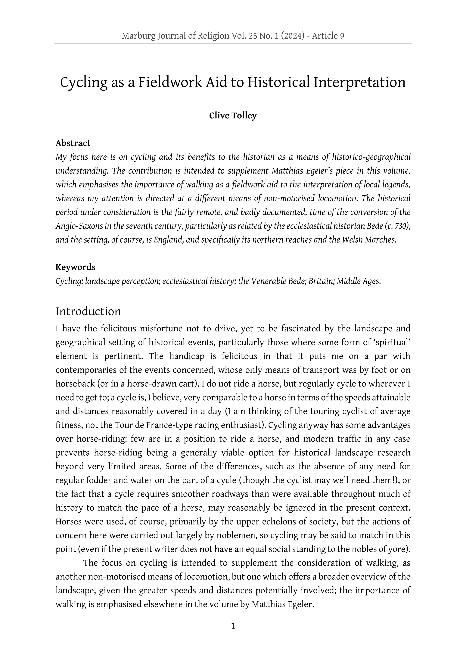Cycling as a Fieldwork Aid to Historical Interpretation
My focus here is on cycling and its benefits to the historian as a means of historico-geographical understanding. The contribution is intended to supplement Matthias Egeler’s piece in this volume, which emphasises the importance of walking as a fieldwork aid to the interpretation of local legends, w...
保存先:
| 出版年: | Marburg Journal of Religion |
|---|---|
| 第一著者: | |
| フォーマット: | Artikel (Zeitschrift) |
| 言語: | 英語 |
| 出版事項: |
Philipps-Universität Marburg
2024
|
| 主題: | |
| オンライン・アクセス: | オンライン・アクセス |
| タグ: |
タグなし, このレコードへの初めてのタグを付けませんか!
|
| 要約: | My focus here is on cycling and its benefits to the historian as a means of historico-geographical understanding. The contribution is intended to supplement Matthias Egeler’s piece in this volume, which emphasises the importance of walking as a fieldwork aid to the interpretation of local legends, whereas my attention is directed at a different means of non-motorised locomotion. The historical period under consideration is the fairly remote, and badly documented, time of the conversion of the Anglo-Saxons in the seventh century, particularly as related by the ecclesiastical historian Bede (c. 730), and the setting, of course, is England, and specifically its northern reaches and the Welsh Marches. |
|---|---|
| DOI: | 10.17192/mjr.2024.25.8699 |
